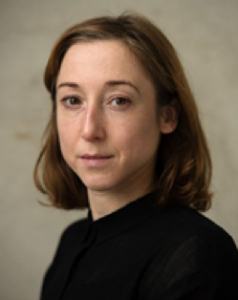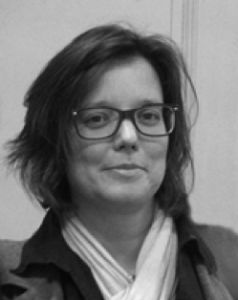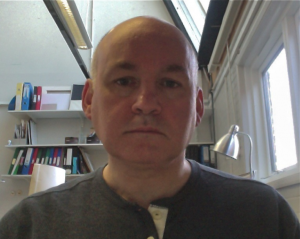ANIMATION ARCHIVES: SITES OF KNOWLEDGE AND CONSERVATION
(SAS2019-11070)
Aafke Weller (Netherlands)2; Mette Peters (Netherlands)2; James Walker (United Kingdom)1
1 – University for the Creative Arts; 2 – Eye Filmmuseum
Aafke Weller
Aafke Weller worked as a visual artist before she started an MA in conservation of modern and contemporary art at the University of Amsterdam. She soon switched to paper conservation with a special interest in modern materials and techniques on paper and graduated with a professional doctorate in paper conservation in 2017. Aafke works as a researcher and paper conservator at the Eye Filmmuseum and the Rijksmuseum in Amsterdam and through Hoogduin Papierrestauratoren in Delft for Het Nieuwe Instituut, the Museum for Architecture, Design and Digital Culture in Rotterdam.
Affiliation: Eye Filmmuseum
Email: aafkeweller@eyefilm.nl
Mette Peters
Mette Peters is an archivist and film historian. She initiated several workshops and projects in which specialists from both archives and academia collaborated and addressed issues related to the preservation of animation heritage. Mette works as researcher and animation specialist at Eye Film and is lecturer at the animation course of the Mediaschool, University of the Arts Utrecht. She is a PhD candidate at the Institute for Cultural Inquiry of the Utrecht University and her research focuses on the earliest period of animation filmmaking in The Netherlands, between 1918 and 1940. She is co-author of the book Meestal in ‘t Verborgene (2000) about animation film production in The Netherlands during the Second World.
Affiliation: Eye Filmmuseum
Email: mettepeters@eyefilm.nl
James Walker
James Walker is Lecturer in Visual Theory for Illustration at the University for the Creative Arts and Associate Editor of the Journal for Illustration. He was Teaching Fellow in Animation at University for the Creative Arts where he managed the Animation Archive, which included the work of Halas and Batchelor Studios and Bob Godfrey Films. His research interest includes areas of propaganda, illustration, visual culture, memory, archives, terror and trauma, visual narrative and animation.
Panel Title and short description | Panel Chair Name and Contact
As the discourse, research and study of animation has developed it has drawn in different fields of study and disciplines. In turn the diversity of approaches towards animation and what is deemed to be animated has equally expanded to reflect shifts and developments in materials, processes and technology. While the production processes have pushed forward, so has the form and mode of recording and dissemination of the animated form. Traditional animated film formats have moved towards digital formats and files held on servers. Within film archives this has lead to questions about how to record, preserve, conserve these new digital formats.
These issues are equally important for animation in particular in terms of the archival of its production history, that extends beyond the final produced film. While the academic study of animation has expanded, consideration of its cultural and archival heritage is less well developed or articulated. This is evidenced in the fragmented approach towards archiving and cataloguing the diverse material forms of animation productions. The diversity of repositories with elements of animation material is significant, the panel considers different approaches towards identifying and studying these collections.
The panel aims to promote and encourage a closer dialogue and engagement between different areas and agencies. In particular, to collapse the distance between animator, archivist, researcher. It considers how to conserve the materiality of animation when some of these elements are by nature transitory and impermanent. The panel questions what is the foundation of an archive and how the discourse around animation studios needs to consider the role of the independent, freelancer animator and the animation collector. As a source of animation collections and how these extend the parameters of animation researchers. In additional the panel considers how archive materials may support and redirect our understanding of animation, the production history and processes of films
Panel Chair: James Walker
jwalker4@ucreative.ac.uk
Abstract1
Animation Artwork: a Whole New Set of Preservation Challenges by Mette Peters & Aafke Weller
The preservation and conservation of animation artwork is a new emerging field that comes with its very own challenges. The ephemeral nature of the objects, the chemical instability of some of the materials and the size of the collections compel both conservators and archivists alike to reconsider their modus operandi and develop new guidelines that take the extraordinary context of these objects and files into account. The Materials in Motion Research Project, that started in 2017, aims to bring together all important players in the field of animation artwork preservation to share experience, forge collaborations and develop new standards. In the past two years, we have studied the artwork collection of the Eye Filmmuseum and visited archives and museums in Europe and the USA to benchmark current practice. We visited the British Film Institute, the Cinémathèque Française, the Musée de Film d’Animation, the Deutsches Institut fur Animationsfilm, the Walt Disney Animation Research Library, the Margaret Herrick Library, the Getty Conservation Institute and the Warner Brothers Archive. The research culminated in a two day expert meeting with archivists, conservators, academics, filmmakers and other specialists in animation artwork preservation. This first expert meeting focussed on cel animation. A second Materials in Motion expert meeting is to be held in 2019 in Manchester and will focus on 3D animation artwork. In our presentation we will give you the lay of the land and introduce the biggest challenges we face trying to preserve our animation heritage.
Materials in Motion is funded by Metamorfoze, the Netherlands’ National Programme for the Preservation of Paper Heritage.
Abstract2
Navigating animation archives: Invisible voices, knowledge and decayby James Walker
The diversity of material forms held within animation archives and in the production of animation offers a multitude of traces of animation knowledge. They offer a historical framework through which we may navigate the cultural memory and history of animation. While much of the discussion around animation archives perhaps still revolves around a dominate Western discourse. There is a need to consider how archival materials in other cultures may offer a distinctive historical voice. One that reflects and offers a deeper and richer cultural history. Archives have an important role in preserving this cultural history and may act as a catalysis for communicating knowledge and cultural memory. Nesmith argues that
“The most serious problem is the overall socio-political weakness of archives. Archivists do not have sufficient authority and resources for their work because citizens are not fully aware of the specific uses and societal benefits of archives.” (2015:120)
Nesmith further argues that archivists need to be more active in prompting the significance of what they do and the collections they manage. Nesmith adds “it may be possible to say that human knowledge is beginning to be shaped by archival materials as never before.” (2015:120) How we consume animation is equally a manifestation of how collective memory is constructed and how we navigate cultural memory. Without active engagement with diverse forms of animation archives and collections we face an mise en abyme of decay. In which we risk losing all traces of animation knowledge for it is “only through a knowledge of their traces” (Connerton 1989 rp 2014:13) that we can give an active voice to our animation heritage.
References
Connerton, Paul (1989 rp 2014) How Societies Remember Cambridge: Cambridge University Press
Nesmith, Tom “Toward the Archival Stage in the History of Knowledge” Archivaria 80 (Fall 2015) :119-145
Palavras-chave: Archiving, Preservation, Animation Artwork, Conservation, Cel Animation
 1 – Aafke Weller (Netherlands)
1 – Aafke Weller (Netherlands)
 2 – Mette Peters (Netherlands)
2 – Mette Peters (Netherlands)
 3 – James Walker (United Kingdom)
3 – James Walker (United Kingdom)


